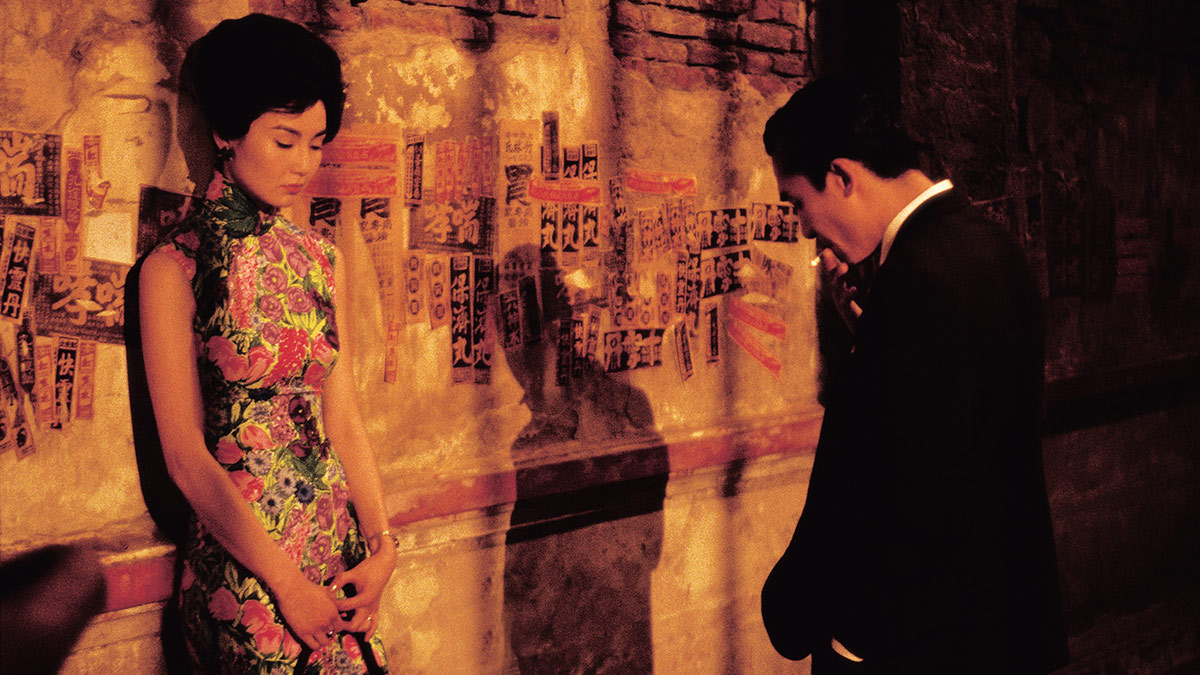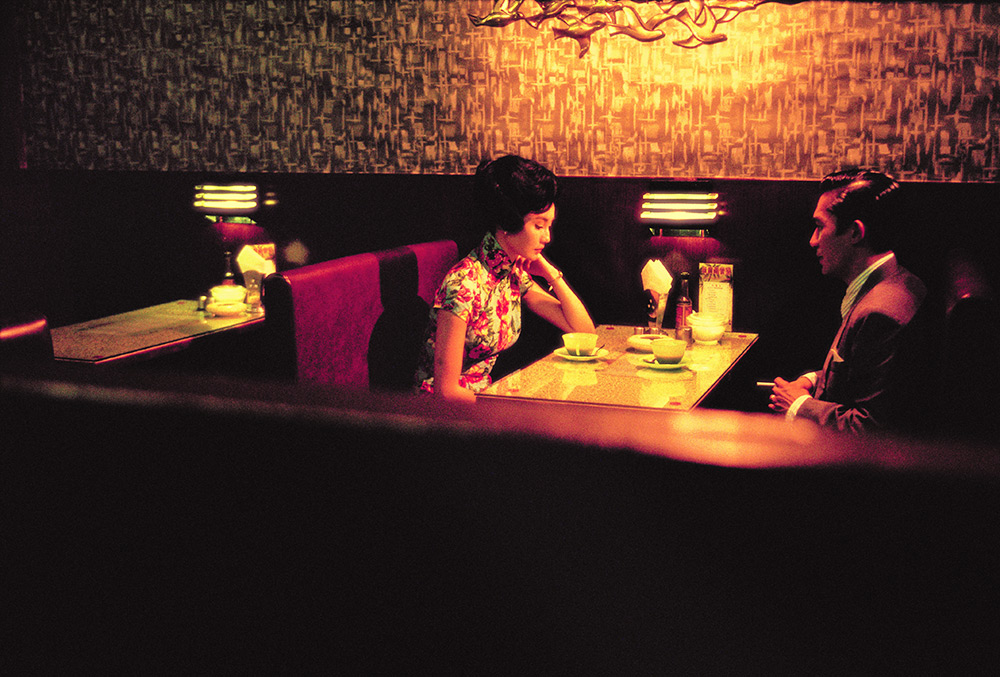
© 2000, 2009 Block 2 Pictures Inc. All Rights Reserved.
“In the Mood for Love” Ambiguous passage of time, ambiguous relationships, and the changing face of Hong Kong
2021.06.15
Unforgivable love, its ambiguity
The title, ``In the Mood for Love,'' means ``a period as beautiful as a flower,'' and it alludes to the time when Chow and Mrs. Chan were in love. Although the word often means "youth," it is also true that Chau and Mrs. Chan spend their days isolated from their surroundings, as if they were in their sweet youth. Although the newspaper company where Chau works and the office where Mrs. Chan works appear frequently, there is little indication of externalities for the two of them. As expected, even the partners do not show their faces to the audience. Chau and Mrs. Chan spend time alone, for example, in the hallway of their apartment, in their room, in a restaurant, on the street, in a taxi, or in a hotel.
Kar-Wai depicts the two's ``In the Mood for Love'' as a time suspended in the air. A major feature is that the passage of time in the play is extremely ambiguous. Although Chau and Mrs. Chan appear to have become friends quickly, it is unclear when each other's partners were having an affair or how long it took for Chau and Mrs. Chan to become attracted to each other. . Kar-wai's specialty, bold editing that allows time to pass, makes the time flowing between the two people unclear. Tony Léon: The Professional changes suits and Maggie Cheung changes dresses many times, and their beauty attracts the viewer's attention, but there are few devices that allow us to determine the passage of time. The most certain thing is that it won't last forever.

“In the Mood for Love” © 2000, 2009 Block 2 Pictures Inc. All Rights Reserved.
Numerous reviews have pointed out that Chau and Mrs. Chan are suspended in time and space throughout the film. The places where two people spend time are, so to speak, ``places on the way from somewhere to somewhere else,'' or they are just temporary places to stay. When the two meet in their apartment, they are unable to leave the room because of the landlord's mahjong game. Both of them are forced to take shelter from the rain on the road. Their common destination is a food stall where they go to buy food at night, but Chau and his wife never eat there together. Almost the only exception would be the restaurant where Chau first invited his wife out.
Chow and Mrs. Chan also visit a hotel, but even that doesn't really become a destination. The hotel is a place where they can avoid the gaze of those around them, and the two meet secretly under the pretext of ``helping Chow with his writing'' rather than for any sinister reason. On the day Mrs. Chan is summoned to the hotel, she declares to Chau that she will not cross the line. As these words suggest, the two continue to maintain a platonic relationship even while visiting the hotel.
At first, the relationship between the two began as a kind of ``pretending affair'', as if to get revenge on his partner. They go out of their way to eat the favorite food of the other person's partner, that is, the person who cuckolded their husband or wife, and Mrs. Chan practices questioning Chow about infidelity by using Chow as her husband. A scene in which he attempts to commit adultery with his wife and then gives up is also filmed, but this was cut out during the editing stage). A love affair outside of marriage is inherently unstable, but the two do not even admit that they are having an affair, and Chau says, ``It's not an affair.'' However, as if to expose the contradictions in their relationship, the camera takes unethical shots of the two, as if peering out of a window or from behind the scenes. Of course, their "pretending affair" quickly became more than just pretend play.
However, their relationship came to an abrupt end. It all started when the people around them, their landlord and workplace, who were virtually non-existent, became suspicious of Mrs. Chan's actions. When Chau learns that Mrs. Chan's husband will return from a business trip, she tells him that she won't see him again. This seemed to be "just practice" like before, but Mrs. Chan cried aloud at these words. However, in any case, the relationship between the two ends on this day. Chau decides to leave for Singapore and asks his wife if she would like to come with him, but she does not respond.

